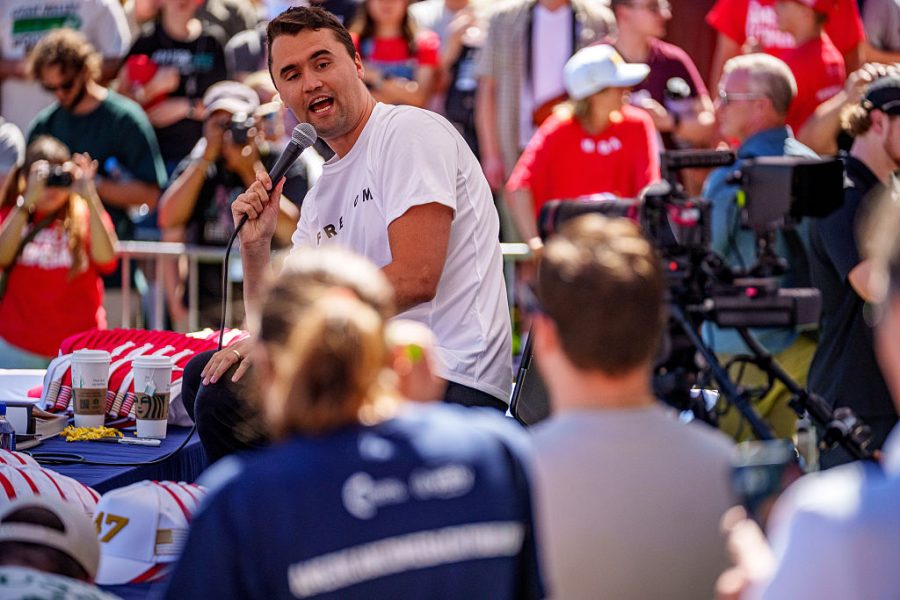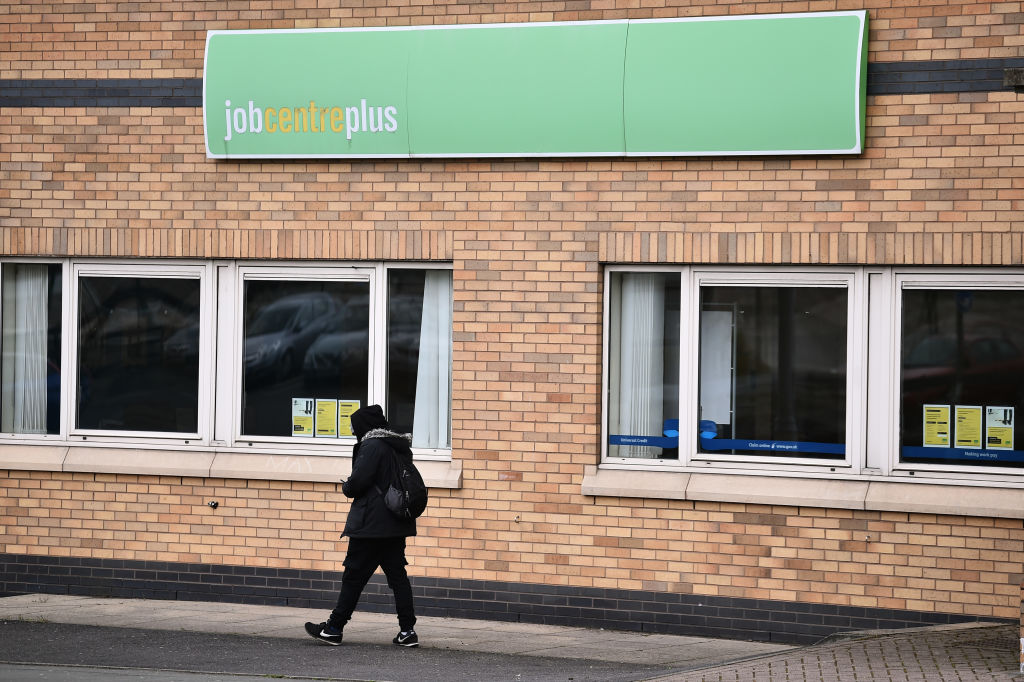Last week, a 75-year-old Christian grandmother was bundled into the back of a police van outside a Glasgow hospital. Her alleged crime? Conversation.
Rose Docherty wasn’t spray-painting walls or blocking doorways. She wasn’t shouting or shoving leaflets into anyone’s hands. She simply held a sign offering a listening ear: ‘Coercion is a crime. Here to talk, only if you want.’ In the eyes of the state, this made her a criminal.
Under Scotland’s new ‘buffer zone’ laws, even the possibility of ‘influencing’ a passerby outside an abortion facility is treated as criminal behaviour. Rose wasn’t standing with an influential message. She was giving people the choice: walk on or stop and chat. But choice, it seems, now belongs only to the abortion lobby. Rose, with two hip replacements, was dragged away by police officers for the crime of compassion.
Here in Britain, the tools of suppression are softer – yet still insidious
This is what shrinking freedom looks like in supposedly liberal democracies. The state silencing of conversation has especially chilling reverberations in a world shaken by the murder of Charlie Kirk – silenced not by authorities, but by an assassin’s bullet. His ‘crime’ was conversations – not near hospitals, but on university campuses. He spent his short life teaching students that men and women are not interchangeable, that children deserve protection, and that faith can transform despair into hope. He called people to marry, to build families, and to serve causes bigger than themselves. For this, the darkness claimed his life.
From Glasgow streets to American campuses, from compassionate conversations to public debates, the same pattern is being repeated: Christians are being pushed out of public life.
Yet the West still sees only the faintest shadow of the persecution faced elsewhere. In Nigeria, entire villages are wiped out for daring to confess Christ. More Christians are killed there than in the rest of the world combined – as many as 7,000 this year alone, according to the NGO Open Doors. Deborah Yakobu, a student, praised Jesus for her exam results in a WhatsApp chat. For that, she was beaten and stoned to death by her classmates. Rhoda Jatau, a mother of five, condemned Deborah’s murder in an alleged WhatsApp post and spent 19 months in prison for ‘blasphemy’ before, with legal support from ADF International, she eventually received an acquittal.
Here in Britain, the tools of suppression are softer – yet still insidious. Army veteran Adam Smith-Connor was convicted as a criminal last November for silently praying in his head for a few minutes near an abortion facility in Bournemouth. He was ordered to pay a £9,000 cost order. Meanwhile in Finland, the parliamentarian Päivi Räsänen faces a criminal trial at the country’s supreme court next month – on hate speech charges found under the ‘war crimes and crimes against humanity’ section of the Finnish criminal code – for a Bible verse tweet discussing whether her Church should really be sponsoring a ‘Pride’ event. The message from authorities around the world then is clear: express your convictions in public, and expect punishment.
A grandmother’s quiet courage. A slain activist’s legacy. A politician’s witness. A young student’s last words. All bear witness to the same truth: the war on Christianity is real, and it is global.
But history offers an inconvenient lesson to would-be censors: the more the Church is crushed, the stronger it becomes. The Roman Empire tried stamping out Christianity with lions and crucifixions; instead, it spread like wildfire. Today, despite surveillance, arrests, and social stigma, Christianity continues to grow.
By 2050, the population of Christians in Africa will double. Data from the Bible Society and YouGov indicates a ‘quiet revival’ in church attendance in England and Wales, primarily driven by Gen Z, who have shown a significantly increased monthly attendance from 4 per cent in 2018 to 16 per cent this year. Christian churchgoers now make up 12 per cent of the English and Welsh population. Bible sales in the US reportedly hit ten million copies in August alone, and churches across America report a surge in young people attending services in the wake of Charlie Kirk’s death. Elon Musk retweeted Erika Kirk’s simple advice this weekend: ‘Go to church.’ Even sceptics, once dismissive, now wander through chapel doors, curious about a faith that inspires such sacrifice – and provokes such fury.
If the past 2,000 years teach us anything, it is this: the darkness does not win. Opponents of faith beware. Suppression provides the most fertile ground to spread the faith.







Comments